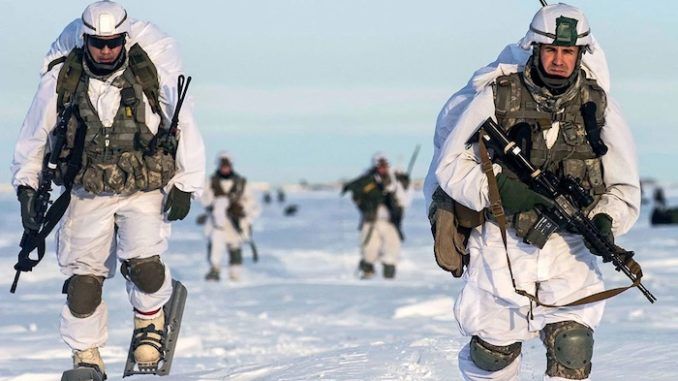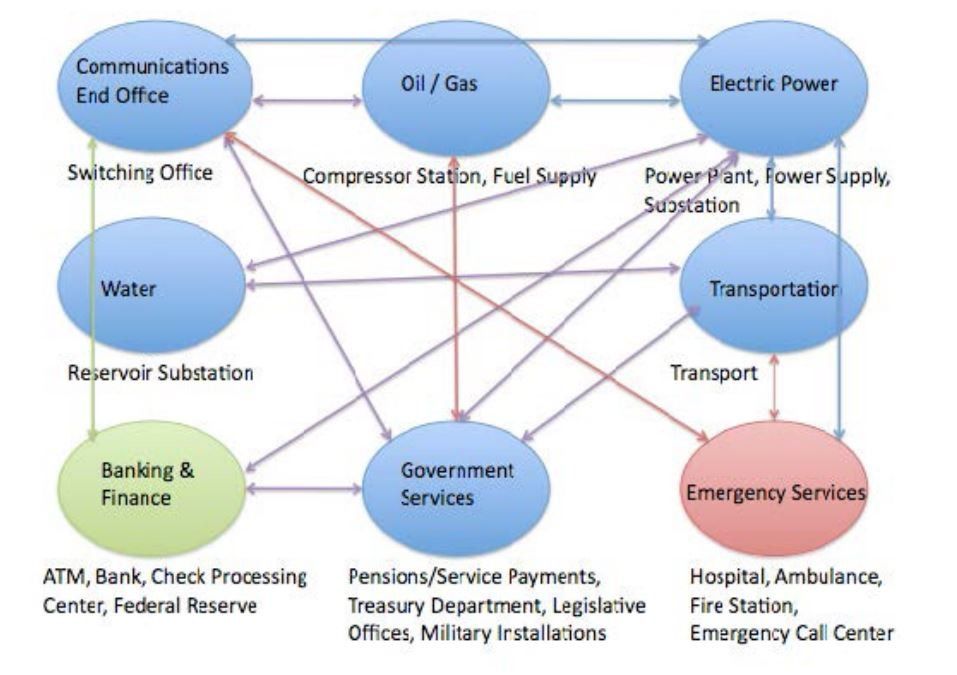
A new US Army report paints the picture of a dark and chaotic future because of “climate change”, with power and water shortages, refugee crises – but also more opportunities for US military intervention around the world.
Behind the dull title “Implications of climate change for the US Army”, a 52-page report by a team of scientists outlines apocalyptic scenarios caused by conflicts driven by hundreds of millions of people displaced by rising sea levels. The report also discusses the potential collapse of the US power grid and transport infrastructure, and the inability of the US Army to provide water for its troops in far-flung regions of the world.
Yet the report also foresees a greater role the Army can play both mitigating the effects of these changes inside the US, and launching military action overseas.

BYPASS THE CENSORS
Sign up to get unfiltered news delivered straight to your inbox.
You can unsubscribe any time. By subscribing you agree to our Terms of Use
RT report:
The report was commissioned in May this year by then-Army Chief of Staff General Mark Milley, who has since been promoted to chair the JCS. Published by the Army War College’s Center for Climate Security back in August, it has attracted little attention until recently, when Nafeez Ahmed reported on its findings for Vice.
One of the more apocalyptic short-term scenarios featured in the report is the collapse of the US power grid within the next 20 years, leaving the country without refrigeration, water treatment, lights, heating, air conditioning, communications, public transportation, fuel distribution, or pretty much anything an advanced civilization requires.

It’s not just distribution, but power generation that is at risk. Of the 99 nuclear reactors operating in the US and providing nearly 20 percent of the country’s power, 60 percent are located in regions that are “likely to suffer from one or more climate threats,” from sea level rise and severe storms to water shortages.
Arctic here we come
Not all is gloom and doom, however: as polar ice caps recede, the mineral wealth of the Arctic is up for grabs – if the US Army can seize control over it from those pesky Russians, anyway.
The US military must immediately begin expanding its capability to operate in the Arctic to defend economic interests and to partner with allies across the region.
Accusing Moscow of “militarizing” the Arctic, the report urges more money be spent on US military capabilities in the region, so that Washington can get access to the oil beneath the frozen sea.
More interventions?
The authors see climate-related disasters displacing hundreds of millions of people around the world. Bangladesh is given as one example of a nation vulnerable to rising sea levels, with the resultant refugees then triggering conflict in the already unstable and nuclear-armed Indian Subcontinent.
According to the US Army, these crises may require US Army intervention, from disaster response by the Army Corps of Engineers to military operations. However, the report warns, if the water shortages get worse – as they are predicted to – the Army is “precipitously close to mission failure concerning hydration of the force in a contested arid environment.”
Operations in places like Syria, Iraq or Afghanistan over the past 27 years will no longer be possible simply due to inability to secure enough water for the troops.
Between that and the rising awareness of climate issues resulting in “significant restrictions on military activities (in peacetime) that produce carbon emissions,” climate change may actually put an end to “endless wars” – not that the Army report actually dares suggest that as a possibility.


